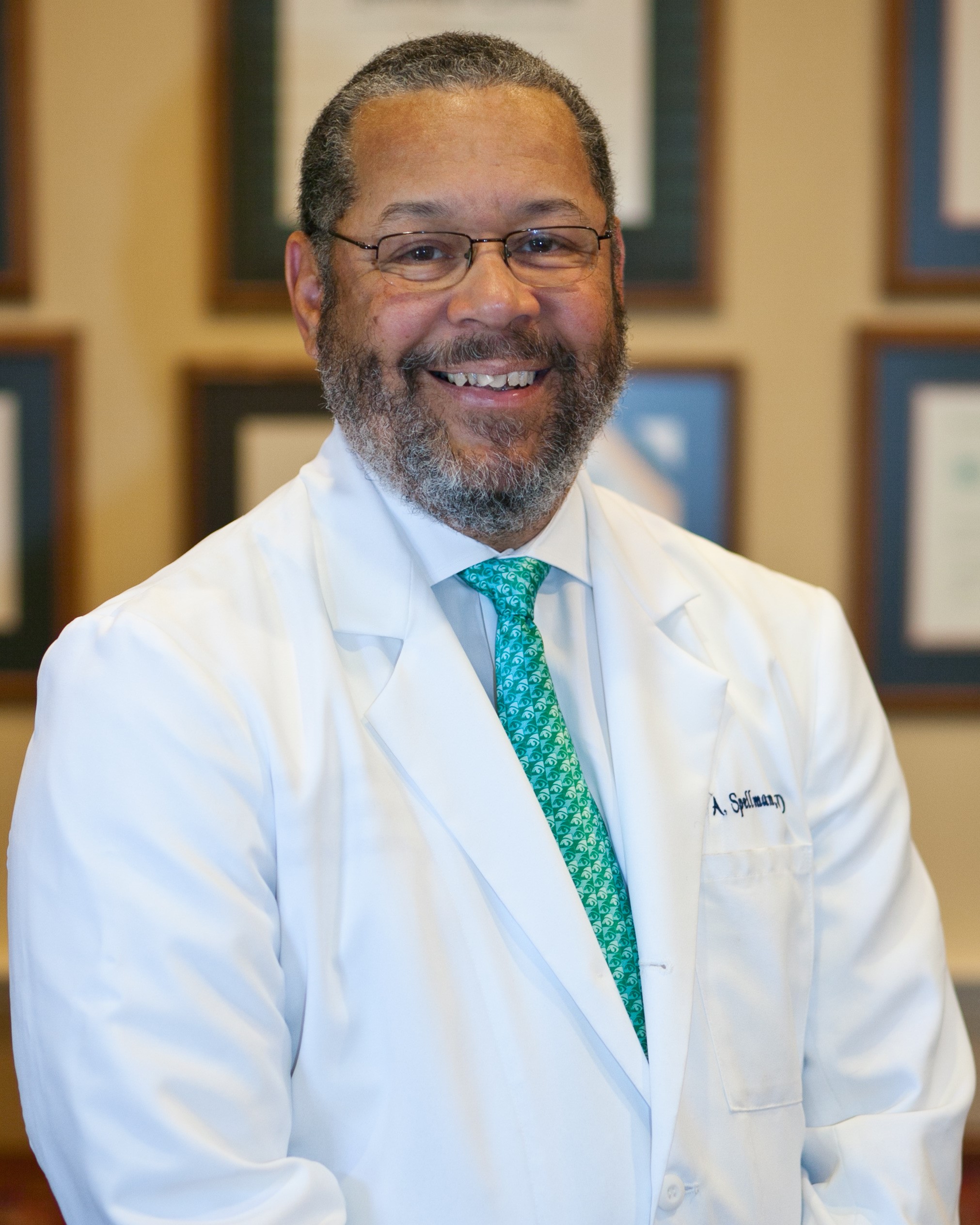Pioneering Retinal Surgeon, Gracious Mentor
Frank Spellman chose Johns Hopkins for his undergraduate studies in 1968 because of its reputation as a springboard to a first-rate medical education. As the son and grandson of physicians, Spellman recognized early that medicine was his vocation, as did many of his classmates—he remembers that almost half of them were premed. Having grown up during the height of the civil rights movement, he wished to serve those who had marched, been bitten by dogs, and who had risked their lives to give opportunities to his generation. It was an exciting time to be on the Homewood campus: the Black Student Union had just been formed and Spellman helped to shape its programs and became involved in student government. Drs. Freda C. Lewis-Hall and Emerson Randy Hall, Jr. recall that “even in those early years we knew that Frank would be an outstanding distinguished leader. As a student he led many of the activities of the Black students on campus.” They also note that Spellman “was an intercollegiate athlete, the first African American to be a house master, and always available to counsel and mentor.” Dr. Ronald Jones has similar memories of his freshman year, in 1970. “While everyone seemed to be buried in their books, in the library, and in classes to get through, Frank made sure the students in my year were able to feel comfortable and were confident they could handle the load.”
During his junior year, a severe viral infection landed Spellman in Johns Hopkins Hospital for six weeks. The experience had a profound effect on the ambitious premed student. His lead physician, Dr. Philip Tumulty, Spellman recalls, provided a role model for the kind of doctor he wanted to be, one “who transcends ethnicity and religion” and “knows how to connect with patients.” Tumulty expressed interest in Spellman’s plans and cautioned that his “work ethic needed to line up with his aspiration” to attend a great medical school. He convinced Spellman to give more emphasis to academics and less to social and political concerns. Spellman took Tumulty’s advice and secured his medical degree at the University of California San Francisco, followed by a residency in ophthalmology at Harvard and a fellowship in retinal surgery at the Bascom Palmer Eye Institute.
Returning to his native Washington, DC, Spellman opened a private practice limited to retinal diseases and surgery, the first African American to initiate and sustain such a practice in the United States. He was also an attending physician and director of the retinal service for many years at Howard University Hospital, and vice chairman, retinal surgeon, and senior attending ophthalmologist at the Washington Hospital Center. Determined to work with the poor as well as the privileged, he rejected positions where Medicaid patients could not be seen. Spellman was elected by his peers as a ”Top Doc” in the Washington, DC, area multiple times, including the last four years of his career. His friend Dr. Lewis-Hall stresses Spellman’s “impeccable reputation” and notes that Spellman treated patients “from all over the world as well as the people of color within the DC area. He is regarded as a great mentor, and remains committed to educating and training medical students, residents, and fellows.”
Indeed, as a regular attendee at Johns Hopkins BSU alumni’s annual Fred Scott Brigade dinners, Spellman uses the opportunity to meet and mentor undergraduates on the Homewood campus. In 2018 he met Myron Houngbedji, class of 2020, himself an aspiring retinal surgeon. Houngbedji recalls that Spellman “gave me valuable insight into the field and graciously invited me to shadow him in his Retina Group of Washington office in Capitol Hill.” Houngbedji “was amazed by his patience and professionalism. The manner by which he establishes trust and connects with his patients is something that I want to emulate with my own patients in the future. As a Black man, it was incredibly inspiring to be able to see myself in such a great physician.” Frank Spellman, who retired in 2020, has achieved the goals that brought him to Johns Hopkins, and still inspires others to realize theirs.
